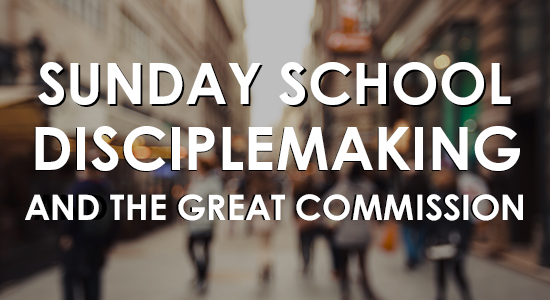
As we conclude our theme of “Making Disciples” for this year, let’s take another look at the Great Commission. We understand that we are to make disciples. We know that this can be done through Sunday School, preaching, and other means of teaching and expounding upon God’s Word. A disciple is made when he or she is engaged in making more disciples. So what keeps us from doing the work of disciple-making? Yes, it is work. It takes time, resources, and an investment from our lives into the lives of others.
When looking at the Great Commission, we need to understand that not everyone is on board with the idea of making disciples. Yes, many will go about the routines of church without engaging in the work of making disciples. Sometimes churches continue the weekly routine and have no evidence of persons growing in their faith to the point of helping others to grow in theirs.
In Matthew 28:16, the scripture tells us that not everyone will be on board. Jesus said that there were those who doubted even after they had seen His miracles and heard His teaching. They still did not worship Him. Jesus saw those sitting on the sidelines and addressed them by giving them and us the charge of the Great Commission.
Regardless of those who are not willing to do the work of disciple-making, we must move forward with those who are willing. We must be one who is willing. It is a personal decision to make disciples. Waiting for everyone else will keep us from making disciples with anyone. Who are you discipling? We need to lead those in our group to be disciple-makers. You need to do this as you teach, but you also need to have those you are working with on a personal level as well.
Disciples are “made” according to Matthew 28:19. Coming to know Christ as Savior indicates a choice to be a disciple. When we fail to follow through with disciple-making, it drastically reduces our capacity to reach more with the gospel. Those who have been discipled well will want to share their faith with others. It is part of who they are as disciples of Christ.
Here are some simple steps that can help you become a better disciple-maker with your group.
• Prepare and teach your group as if everyone in the room will one day become a disciple-maker.
• Walk with individuals in your group through the struggles and celebrations of life while pointing them to Christ.
• Understand that not everyone will be willing to be discipled. Disciple-making is a personal decision and not everyone will respond to that call upon their lives.
• Pray about who God would have you disciple. Just because a person has been a good attender in your group or is a church member does not mean that someone has personally invested in him or her.
• Practice evangelism from the perspective of disciple-making as Jesus did. Lead people to Christ. Share life with them. Show them the importance of leading others to faith as well.


